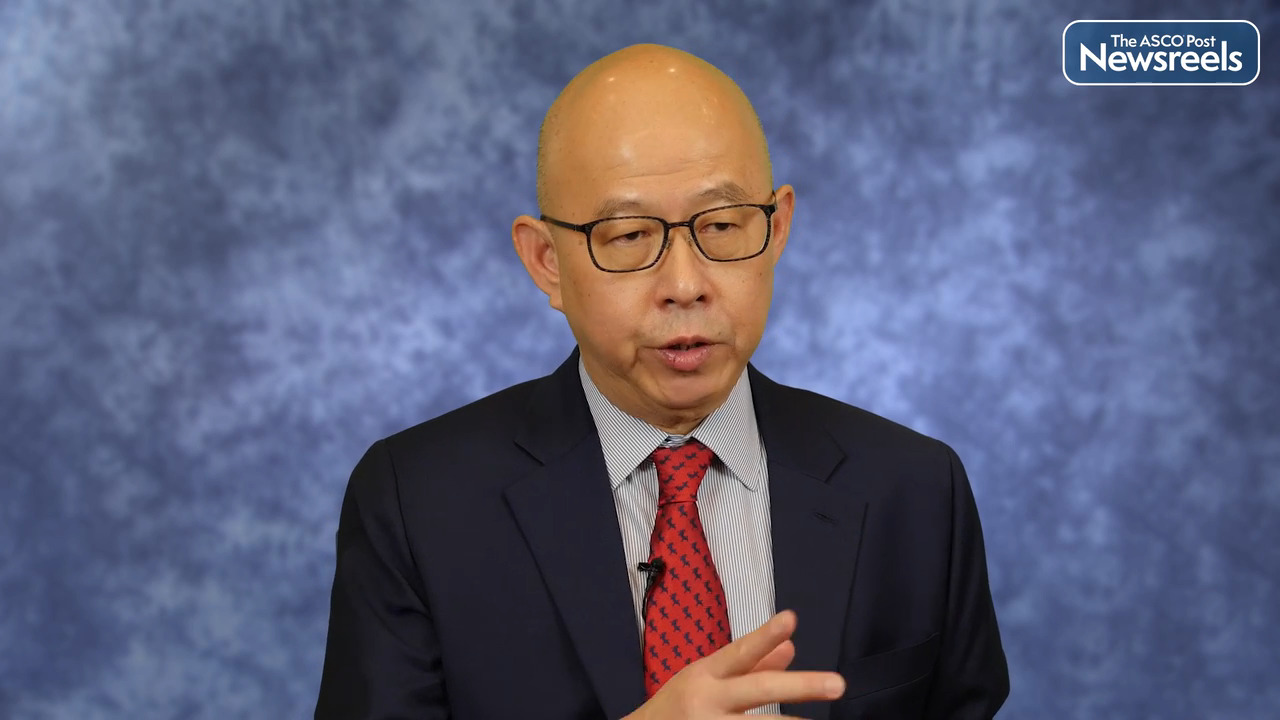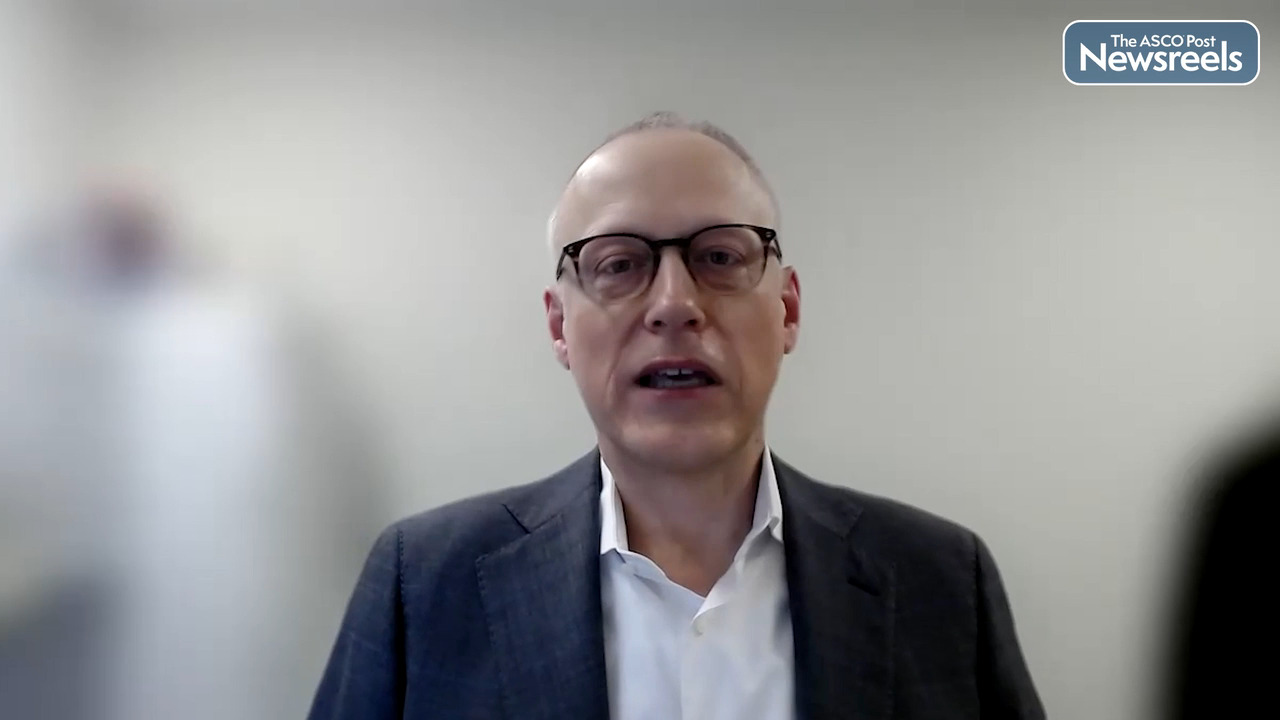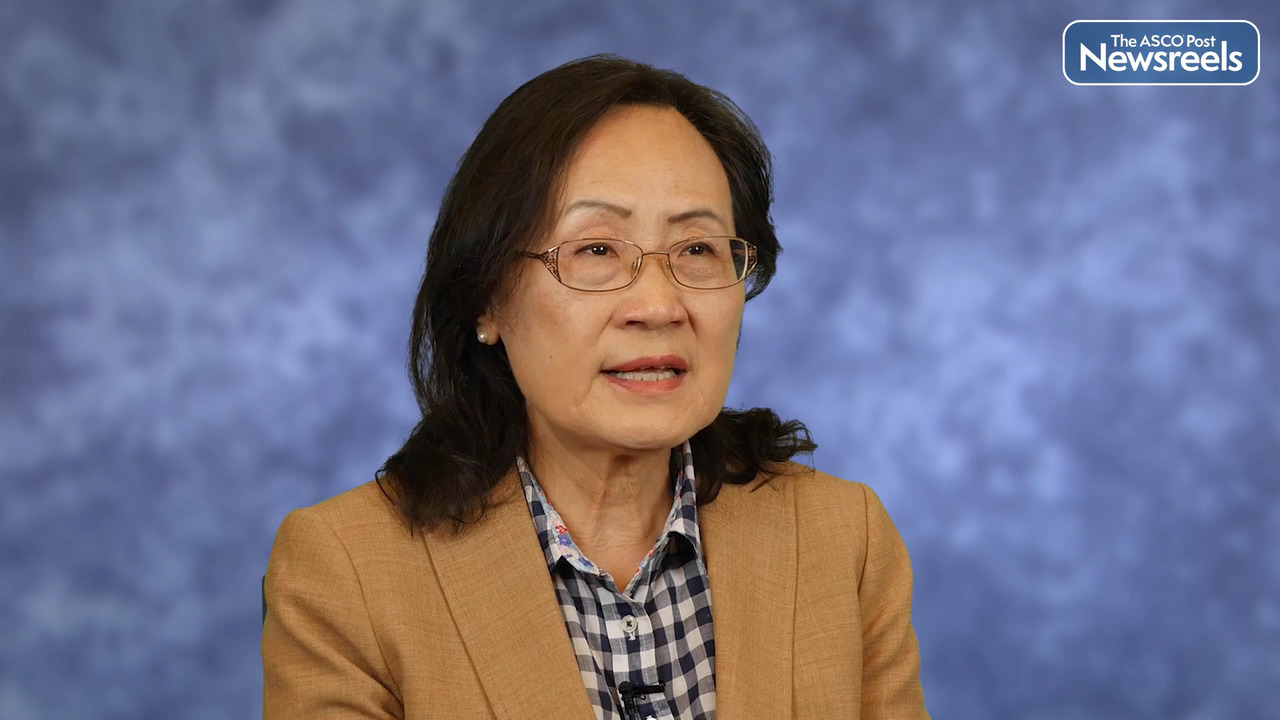Diana Azzam, PhD, on Pediatric Cancers: Efficacy of a Precision Medicine Approach
AACR Annual Meeting 2023
Diana Azzam, PhD, of Florida International University, Robert Stempel College of Public Health and Social Work, discusses her study results, which showed that treatment protocols guided by functional precision medicine yielded significantly longer progression-free survival and improved overall response in pediatric patients with relapsed or refractory cancer, compared with their previous treatment and standard of care. (Abstract LB358)
Transcript
Disclaimer: This video transcript has not been proofread or edited and may contain errors.
Most precision oncology approaches are based on genomic profiling, which identifies actionable mutations in only 10% of cancer patients. It's even challenging in childhood cancer patients with relatively few driver mutations. Functional precision medicine is a relatively new field that integrates with genomic profiling and combines a rapid high-throughput drug testing on live patient tumor cells in an attempt to identify novel treatment options for refractory patients.
Our study is a pilot single-arm study that is the first in the United States to illustrate the feasibility and clinical impact of functional precision medicine in relapse refractory childhood cancers. In collaboration with Nicklaus Children's Hospital, we enrolled 25 young adults with both hematological and solid cancers, and we used a FDA-approved drug library that encompassed 40 formulary drugs available at Nicklaus Children's Hospital, as well as 47 non-formulary drugs that are approved by the FDA, including phase three clinical trial candidates.
So functional precision medicine data and molecular data were prospectively generated and provided to a molecular tumor board of clinicians to support clinical decision for each patient. Compared to genomics-only, we found that ex vivo drug testing were able to provide results in a clinically actionable timeframe. A median time was seven days, which is faster than genomics-only, and this is particularly important for patients with aggressive progressive cancers.
We also found that ex vivo drug testing provided recommendations in a higher fraction of patients compared to genomics-only testing. Our results also showed that patients that were guided by FBM had improved overall response and longer progression-free survival compared to those that were not guided by FBM and also compared to their own previous regimen.
Thus, we show technical feasibility of implementing functional precision medicine in relapsed refractory childhood cancer in the clinical practice.
When we clustered drug response profiles, we found that patients of the same subtype of cancer did not cluster together. What was also interesting is that drug response profiles from minority populations were different than other ethnic groups. So based on that, we just received a new grant from the National Institute of Minority Health and Health Disparities, as part of the RCMI center at Florida International University, to start a study and enroll 65 additional patients in South Florida. We are also going to use a novel machine learning approach to uncover specific biomarkers, along with targeted drugs that may be specifically expressed in minority populations.
So the response and survival of the patients based on FPM is very promising and warrants a large scale randomized clinical trial that will basically validate the benefit of functional precision medicine in relapsed refractory cancers. We're in the process of setting up a CLIA lab in the state of Florida for functional drug testing in order for us to implement a large scale randomized clinical study and really test the efficacy of functional precision medicine.
Related Videos
The ASCO Post Staff
Pierce K.H. Chow, PhD, MBBS, of the National Cancer Centre, Singapore and Duke-NUS Medical School, discusses phase III findings showing that, for patients with hepatocellular carcinoma at high risk of disease recurrence, adjuvant therapy with atezolizumab plus bevacizumab after resection or thermal ablation was more effective than active surveillance. According to Dr. Chow, these results could lead to reassessment of surgical resection in this disease. (Abstract CT003)
The ASCO Post Staff
Marcus O. Butler, MD, of Toronto’s Princess Margaret Cancer Centre, discusses evidence of tumor response in orbital lesions treated with tebentafusp in patients with metastatic uveal melanoma. Tebentafusp is a first-in-class novel bispecific protein, the first therapy to show superior overall survival compared with standard therapy for metastatic uveal melanoma. Based on these study findings, a role for this agent as a neoadjuvant treatment warrants further investigation. (Abstract LB 118/1)
The ASCO Post Staff
Sherry X. Yang, MD, PhD, of the National Cancer Institute, discusses findings from the TAILORx trial, which showed that, despite chemotherapy, patients with high recurrence scores continue to have a poor prognosis. This result suggests the need to develop new management strategies for patients with early-stage breast cancer. (Abstract LB119)
The ASCO Post Staff
Dario A. Vignali, PhD, of the University of Pittsburgh School of Medicine, discusses LAG3, the third inhibitory receptor to be used in the clinic. He describes the signaling mechanism this immunotherapy uses; new insight into its function, alone and in combination with PD-1; and an analysis of samples from patients treated with LAG3/PD-1 therapeutics. (Abstract PL04-05)
The ASCO Post Staff
Christina M. Dieli-Conwright, PhD, MPH, of Dana-Farber Cancer Institute, discusses her research on the ways in which postdiagnosis exercise, particularly resistance exercise, can build strength and muscle mass and affect cancer outcomes. She also describes her focus on biomarkers related to body composition, inflammation, metabolic dysregulation, and cognition—all influenced by exercise.





